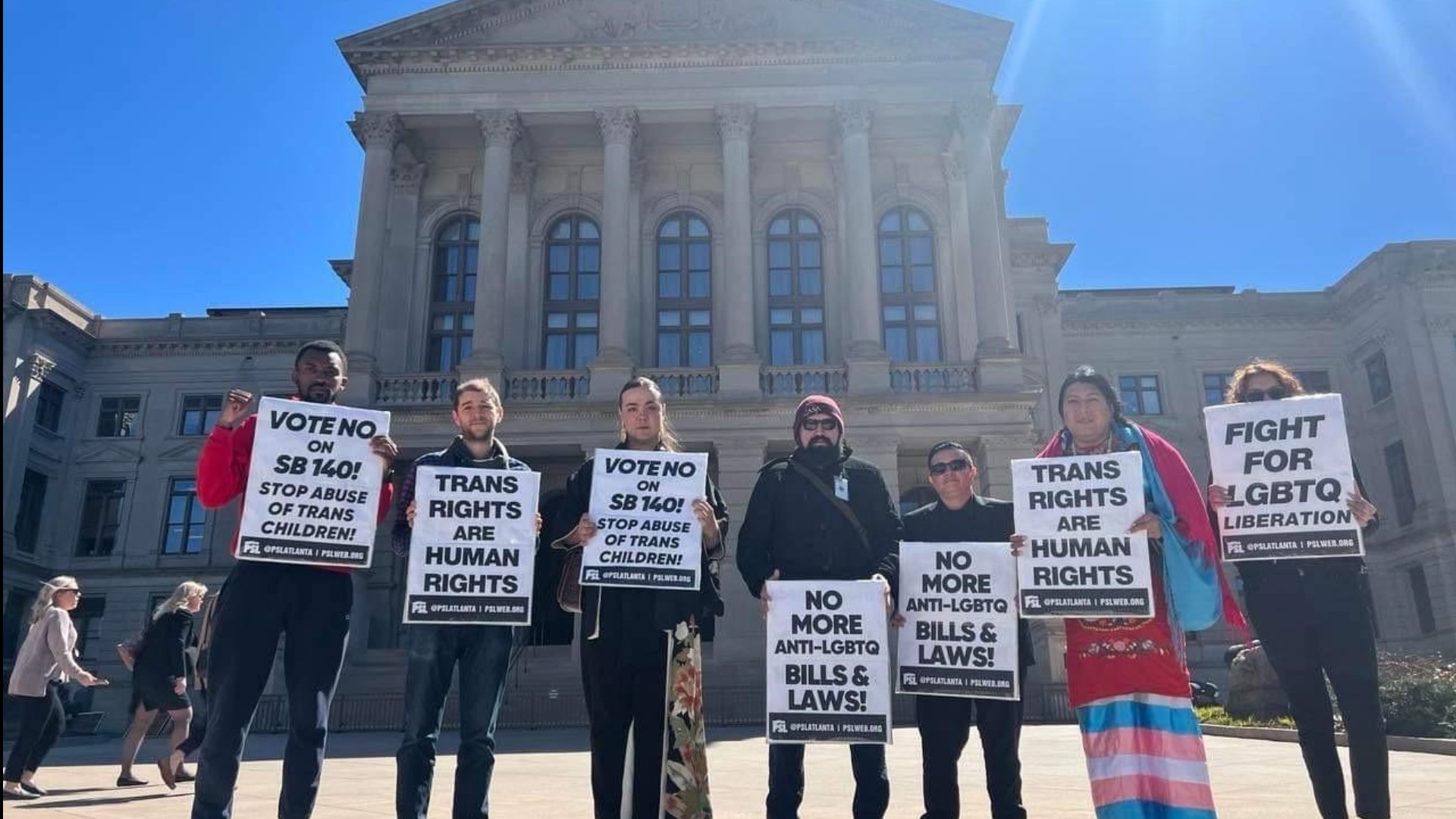ATLANTA — In what's become a legal ping-pong match, Georgia can once again enforce a ban on hormone replacement therapy for transgender youth - but advocates say the match isn't over.
The ban was rolled back Tuesday, allowing Georgia to enforce its law. SB 140, also known as Georgia’s ban on gender-affirming care for minors, prevents hospitals and other medical facilities from providing gender reassignment surgery, any surgical procedures designed to alter primary or secondary sexual characteristics and hormone replacement therapy to people younger than 18. Puberty blockers for minors are still legal.
Tuesday's shift brought local organizations like Community Estrella back to the drawing board.
“Since this law started, we’ve always said, instead of gaining more rights, we’re losing them,” Li Ann Sanchez, an Indigenous Mexican activist and CEO of Community Estrella said in Spanish. Her comments have been translated for this story.
The organization's name translates to Community Star; it's a nonprofit that advocates for the human rights of Atlanta's Black, Indigenous and people of color (BIPOC) trans community. Community Estrella gets its name from inclusive Spanish pronouns. It is one of the only organizations in the South that offers resources and support for the transgender community in Spanish.
Sanchez and her organization are part of several local groups advocating for BIPOC transgender and gender non-confirming community human rights in Georgia.
With Georgia passing laws that directly impact those who seek refuge with the organization, Sanchez said advocacy for more visibility has become a priority. Community Estrella was one of the organizations behind the first Trans Liberation Day at the State Capitol this past March, not long after Gov. Brian Kemp signed SB 140 into law.
Backers of the law said youth should not make life-changing decisions about their bodies that could cause harm or be permanent. Sanchez said it's up to people and their parents to make healthcare decisions.
According to the Human Rights Campaign, nearly 40 transgender or gender non-conforming people were shot or violently killed. A majority were BIPOC individuals.
Community Estrella works to make sure that no one becomes part of that statistic and stresses that violence against those who don't conform to the gender binary is prevalent. This is why the organization works to support some of the youngest members of the community.
Sanchez is concerned that Georgia's hormone replacement therapy ban will distress the state’s trans youth.
“It’s very sad because several trans people and trans children will no longer be able to get treatment,” Sanchez said.
The activist explained that the ban would force several trans children to look for gender-affirming care on the streets as no medical professional in the state is allowed to give them treatment.
As Georgia's law continues to be challenged in the courts, Sanchez said promoting acceptance and awareness is the best way to support young people who are impacted.
"We will continue to organize ourselves to see what can be done to stop this ban,” Sanchez said.

